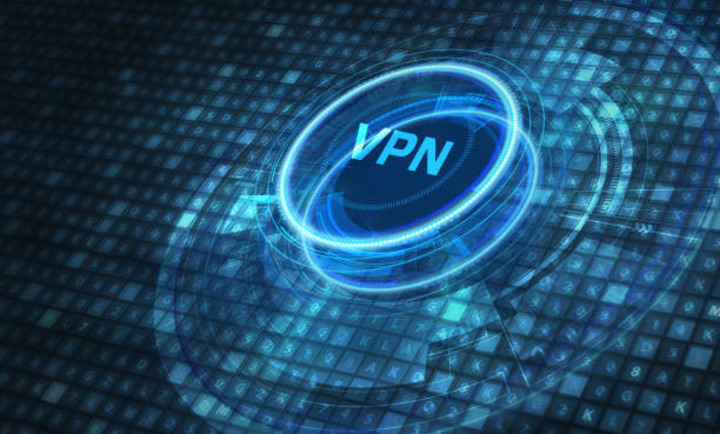Proxy VS VPN Programs: Similarities, Differences, Functioning, and Usage
The difference between proxy and VPN programs is apparent to digital masters and specialists. Other, less tech-interested users might mix those two terms up. Of course, not knowing narrowly-focused definitions is okay. Yet, that knowledge gap might endanger your informational safety. And the first step to strengthening your digital shields is knowing definitions and differences. And let us answer the essential questions about Proxy VS VPN contrasts.
Is a VPN a Proxy? Definitions Say No
Some users might suppose the answer is positive because VPNs and proxies hide IP addresses. Yes, they share that function, but everything else is different. Thus, their functioning principles are far from being resembling. Let us focus on both definitions separately.
What Is a Proxy?

Proxies are server applications that take the role of mediators between the User and a Web Resource. So, a proxy is a servant who brings your emails on the tray and gets web pages you order from the worldwide Interned library. The proxy estimates your request and independently performs informational transactions, which take seconds.
Proxy Server Types: the Essence Condensed
There are many proxy server types, from merely forwarding ones to sub-types of surrogates. Some of them bestow faster speeds but lower protection, and vice versa. So, the first “family” of proxy servers is open proxies, with two main “clans”: anonymous and transparent. Another genus is reverse proxies.
Open proxy servers: anonymous or transparent ones
- Anonymous proxy servers mask your IP address and support HTTPS headers. That does not mean that informational supervisors like advertisers cannot identify you. Using an anonymous proxy server still means leaving digital fingerprints. Your IP remains unreadable to snoopers, but there are also cookie files. Henceforth, your time zone, browser choice, and other details are visible to advertisers and other onlookers.
- Transparent proxy servers have the same functionality and support HTTP headers. Transparent ones also make it easier to retrieve your IP. But you can retrieve cached websites faster using this type of proxy.
Reverse proxy servers: the surrogates
Those proxy servers are vital for big digital projects and websites. Those will keep static content cache, hide info of originating servers, etc. They help balance the load between internal components.
The full list of reverse proxy’s capabilities includes:
- Encryption/SSL acceleration;
- Cache graphical pieces for faster performance later;
- Load balancing;
- Compression for, again, faster functioning;
- Mitigating DoS and DDoS attacks and removing malware easier because of the firewall applications;
- A/B testing (the experiments for user experience research) with zero JavaScript tags;
- Adding access authentication to a server that lacks authentication;
- Other purposes.
Yet, there is an extended list of risks associated with this proxy type. IP tracking is the first and most significant concern. Furthermore, hackers and crackers usually abuse reverse proxies to access internal systems.
What Is a Proxy Server’s Role?
The list that explains means of use may take a whole tome. Proxy servers function as content-filtering instruments and censorship-bypassing tools. Also, they help with language localization, performance enhancement, security boosting, and issue mitigating. Some anonymizing proxies might erase your digital traces making you 90% non-distinguishable. And the 10% of the visible info will be insufficient to point you in the digital crowd. So, that is both an extra defense layer and an administrative controller.
What Is a VPN Then?

Many users know the abbreviation but miss the full designation. That well-known combo of letters stands for Virtual Private Network. The privacy shields you and other Internet venturers from digital pursuits advertisers organize.
Some might suppose that VPN users need this instrument to conceal their “bad” deeds in the Internet world. Still, VPN use has nothing to do with illegal or immoral activity. Furthermore, VPN provides more complex data encryption by redirecting all info to an encrypted tunnel. Thus, a user’s digital traces vanish, making it undoable to identify them.
Who Needs a VPN Constantly?
No, VPN is not for ordering weapons and other dangerous things. Ordinary people use it to get over the digital bulwarks of some services that do not work in their countries. Usually, those services are for entertainment. For instance, a user might want to watch HBO or Disney+, but their country does not support those channels. Yet, some people need a VPN program for work, like:
- Journalists who perform investigations or specialize in problematic topics;
- Activists who are in a continuous opposition with different groups;
- Lawyers, social workers, and other specialists who work with sensitive information;
- Business people, because there is constant rivalry in the market.
Some other groups include:
- P2P sharing application users who must mask their IP;
- Torrent users who must sustain their anonymity.
Challenges Associated with VPNs
Objective reality shows that shielding yourself with a VPN never guarantees axiomatic privacy. Unfortunately, not all brands contribute to absolute security. So, many VPN providers might leave pitfalls and gaps that advertisers and hackers can use and abuse.
There are many constituents of a properly functioning VPN. And here are the essentials to ponder on:
Free VPN has a 99% chance to protect you only seemingly
VPN apps on the app store and play market scream legendary security and undeniable privacy. Still, those applications tend to gorge a ton of traffic, slowing your connection down to oblivion. In parallel, their digital shielding is so-o-o perfect only in the description. You will have zero ways to analyze if your information is under actual and unbreakable protection. Moreover, free VPNs have minimum functionality if you do not pay monthly.
In addition, there are lists of things a VPN must have. For instance, that could be a kill switch. Expect the free VPN to have faults in that component, revealing your IP when the connection drops.
By the way, about kill switches!
That automated instrument exists to shut your digital castle’s doors when there is a risk of data leaks. Suppose the VPN connection has issues, and the program is nearly freezing. Such situations reveal your IP, location, preferences, and other sensitive components. The kill switches’ work here is to disconnect you before such a leak occurs.
There are many situations when the kill switch triggers itself. Like:
- Internet server disconnection from the VPN server due to connectivity problems;
- Changing the VPN servers;
- Using suspicious and unreliable connections, like public Wi-Fi;
- Installing software updates (the Internet reconnection does not include opening the VPN app);
- New firewalls without mentioning that your VPN is an exception for it (the firewalls block such apps);
- After restarting the device without enabling VPN back.
As a rule, paid and free VPN programs make kill switch work from the start by default. Users can always toggle some settings and deactivate the tool. In that case, nothing will stop them from browsing, but the digital spies will see all the information.
Speeds
VPN always slows speeds down. That is why it is advisable to minimize torrent processes while using it. Such operations litter and load the channels. But overall, VPNs might make you wait for minutes to watch a short video in 144p. Exaggerations aside, do not expect to watch a 4K Netflix show when using a free VPN. Only rare paid programs allow convenient usage, but they cost around $8 or more per month.
The fastest VPN servers will be those closest to your location. But remote servers, like Chinese or Australian ones, will make your download speed like an upload. In turn, the upload speed will be non-existing.
Using a Combo: Is a VPN Proxy Server the Best Choice?

A VPN proxy server combination is not a rarity. Notwithstanding, a VPN proxy might be excessive. So, a user who prefers a VPN proxy gets only seeming benefits when, in reality, there are more dangers than wins. First, using a VPN proxy means spending a lot of time on configuration. Second, the proxy server will gather your data that might become readable even when you enable the VPN program.
Are Paid VPN and Proxy Programs Worth It?
The answer is positive if we discuss a theoretical excellent VPN or proxy. Nevertheless, even costly programs might not provide the services you need to stay hidden. Thus, before picking a VPN proxy, ensure you have read as many reviews as possible.
There are both reviews from tech gurus and mere Internet users who test such programs. So, read materials that elucidate constituents like:
- The VPN proxy program’s functioning principles;
- Kill switches’ performance;
- Speeds (both download and upload);
- Torrenting capabilities;
- Opportunities to overcome censorship (not all programs let you get global access! For instance, some of the best VPNs cannot let you watch Netflix even);
- Interface peculiarities;
- IP shufflers (that is a convenient and often essential tool many VPNs lack and proxies do not have);
- VPNs’ simultaneous connecting (the optimal number is from five to ten);
- Advertisement blocking;
- Server locations and performance regarding the loc you choose;
- Prices for different subscription periods.
And it is advisable to go for paid versions. They might cost less than $5 per month. Still, even around $10 per month is not the worst case. Moreover, free proxy servers and VPNs bring many potential detriments. So, ensure that you understand the dangers of free proxy servers and VPNs.
Is There a Way to Protect a User’s Data when There Is Only a Free Proxy or VPN?
Tech adepts manage to save money by using free VPN proxies. The first thing you ensure is that you avoid HTTP websites. HTTP is the sign that there can be any third parties gathering information for your profile. Transparency of your actions lets them form an accurate vision of what you do, prefer, love, hate, etc.
So, HTTP is like a high-resolution photo camera that snaps your look and immediately shares that pic. And the advertisers will know that you are a young Middle-Eastern woman with long blonde hair and brown eyes. They will also know details like she wears a blue dress with specific prints and has a scar on her left leg. Identifying that woman will be way easier, which also means intensive targeting. Sure, that information might also go to the HTTPS website’s database. Still, HTTPS guarantees the security of the hypertext transfer protocol. So, this detailed portrait will serve as your ID card to access the website, but unknown parties will not take that info. But that does not cancel that a company’s business partners will not see the portrait.
Avoiding the described example is impossible without VPN tools. But even the best proxy will not save you from profiling. So, solely private networks may mask you.
The second obligatory complex of actions is updating your anti-malware system. Never postpone checking if there are any suspicious files after you visit a potentially hazardous site. Moreover, strange ads always pop up when we browse any stuff. One accidental click might download an unnoticeable file that has already gorged some of your info. So, maybe check the safety right now?
Another advice is never to click links under posts that scream about some benefits. Unfortunately, many people have yet to comprehend the essentials of media literacy. So, they might suppose a lucrative offer like a sudden promo code will ACTUALLY work. Yet, such links redirect users to HTTP websites and trigger unnecessary downloads that might be deleterious.
Yet, even such informational tidiness will not help prevent profiling. Your digital fingerprints will remain disclosed to everyone who has an interest in targeting you. And if those are mere advertisers, it is not a vast problem. But hackers and crackers will not hesitate to steal the maximum.
Summary Before Goodbyes
Using a VPN or proxy has various benefits. Still, none of the free programs guarantee 100% security. If your priority is standard security and you are okay with data gathering, then the proxy is the choice. But for extra security, it is wiser to install a VPN. And remember that their combo is not as beneficial as it may seem.
